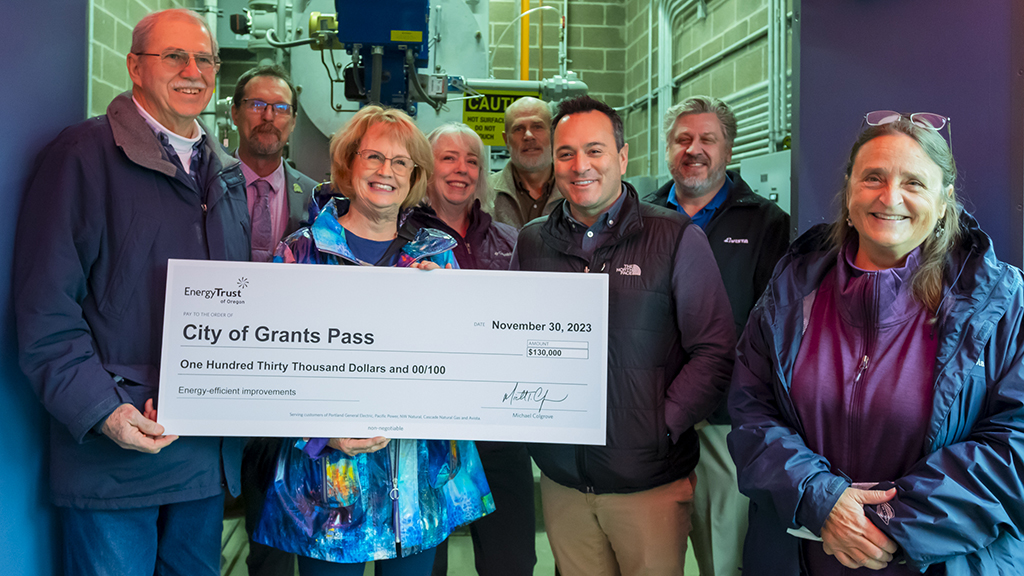Success Story
City of Grants Pass uses biogas to lower costs at wastewater treatment plant
Treating wastewater isn’t just about community health and safety. It can also be a way to lower costs and increase its ability to adjust energy use to variable conditions. A recent upgrade at the Grants Pass Wastewater Treatment Plant is an example of the projects that are moving the city toward its energy efficiency and sustainability goals.
The plant, which serves approximately 14,000 homes and businesses, installed a new dual-fuel boiler and heat exchanger system that is using biogas—a renewable energy resource that comes from organic waste—produced at the plant as fuel to meet its thermal energy needs, offsetting the cost of purchasing natural gas.
“This project has not only helped Grants Pass toward its greenhouse gas emission goal of net zero by 2045, but in the months since the project has been up and running the Wastewater Treatment Plant has saved on utility bills by generating its own clean energy,” said Jason Canaday, Grants Pass public works director. Those savings are currently more than $53,000.
With the new 40-horsepower dual-fuel boiler, the Grants Pass Wastewater Treatment Plant is now using renewable biopower to meet the plant’s thermal demand, which is an estimated 52,000 therms of natural gas per year they don’t have to purchase. Plant Superintendent Gary Brelinski said, “I was spending $3,000 to$4,000 a month on natural gas in the winter. The savings from our new system are good!”
The wastewater passes through a 164-mile network of pipes to reach the treatment facility where the water and sludge are separated and treated. To generate biopower, the sludge is processed in an anaerobic digester—which breaks down organic waste to produce biogas— that requires heat to maintain the correct balance of biological activity. Prior to the upgrade, the facility’s 70-horsepower natural gas boiler and heat exchanger system that supports the digester was aging and needed to be repaired or replaced.
The treatment plant’s engineering team, with support from Energy Trust, evaluated two options: one that would keep the existing natural gas-fueled boiler and replace the heat exchanger, and the second that would install the dual-fuel system, which can use natural gas or electricity. With a $130,000 cash incentive from Energy Trust, the dual-fuel system penciled out as the preferred investment.
The City of Grants Pass has been working to improve its energy efficiency and increase sustainability for more than a decade, replacing lighting with LEDs, installing solar panels, adding hybrid vehicles and improving facility operations. In 2023, the city further defined its efforts in the Grants Pass Sustainability and Energy Action Plan.
Energy Trust has supported development of this collaborative and comprehensive road map to build resiliency into the region’s future. With nearly 25 years of experience implementing clean energy solutions for all types of energy customers, Energy Trust can help Oregon communities of all sizes find the right approaches to reach their community-led goals.
Karen Chase, Energy Trust’s senior community strategies manager, pointed out that the dual-fuel boiler upgrade at the Grants Pass Wastewater Treatment Plant aligns perfectly with the city’s goals. “The boiler is emblematic of the kinds of projects that are more efficient and save the city money going forward,” said Chase “The planning team envisioned energy-saving upgrades like these for all of the city’s enterprises.”
“Cities are not going anywhere,” continued Chase. Karen Chase, Energy Trust’s senior community strategies manager. “The energy efficiency and renewable energy investments they are making today are meaningful long into the future.”
